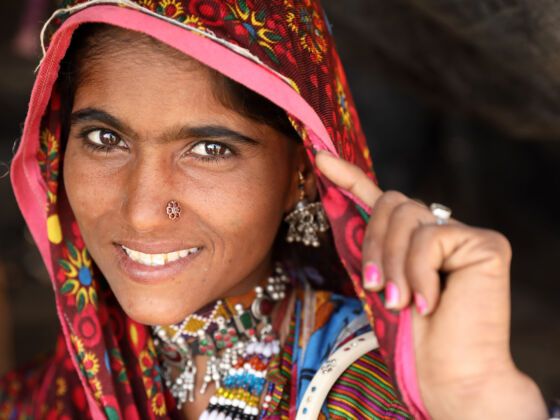One day in late January 2009, some young women in a pub in the city of Mangalore, in Karnataka, India, were beaten up by members of the group that calls itself the Sri Ram Sena. This political group, headed by a man named Pramod Muthalik, felt the women were degrading traditional Indian values by being in a pub where alcohol and the company of men were easily accessible.


The name of the group literally means “The army of Ram” – Ram is a Hindu god – and the men subsequently threatened to marry off any couple found in public celebrating Valentine’s Day.
By early February 2009, Nisha Susan and her friends initiated The Pink Chaddi Campaign against the moral policing of Indian women by Sri Ram Sena. The Pink Chaddi Campaign is a non-violent protest that has received tremendous support from people in India and the world over.
Hailed by many members of the press as a brilliant Gandhian political strategy, the Pink Chaddi Campaign urged people to mail pink underwear to Muthalik and the members of Sri Ram Sena as a Valentine’s Day present.
It also urged a nationwide pub crawl on Valentine’s Day, where women and men were requested to walk freely into pubs and raise a toast to Indian women and their rights.
On Valentine’s Day, Pramod Muthalik was taken into preventive custody by the government. Meanwhile, pink panties arrived by the dozens in the Sri Ram Sena office.
The Facebook group for the movement, A Consortium of Pub-going, Loose, and Forward Women, has played a major role in raising awareness about the campaign in urban India. The group and the fan page for the campaign provide a forum for active discussion and debate about the issues involved – the campaign has been thoroughly dissected and analyzed, celebrated and reviled, criticized and praised all over cyberspace.
The Pink Chaddi Campaign has also sparked many discussions offline among people who enthusiastically support it, violently oppose it, or are somewhere in between. Those in between question the political efficacy of such a campaign; some express support for the intentions but disagree with certain methods. Some conservatives also express their distaste for women who like to go to pubs, citing reasons with phrases such as “traditions” and “corrupting innocence” and “culture” bandied about.
As a young woman in urban India, I sent in a pink chaddi without delving too deeply into the political repercussions or analyzing the effectiveness of the strategy of the campaign. As someone who faces the pressures of street sexual harassment and other forms of woman baiting and suppression, I joined the Facebook page and sent in a note along with the underwear to play my part in the movement.
I sent in the panties with two other friends, a man and a woman. We all signed our names, and my male friend put in “Woman Lover” beside his signature, while I scribbled the highly imaginative line “I am not afraid of you” after staring at the paper for a long time.
After all, what do you say to a group that thinks a woman’s right to be wherever she wants is against Indian culture, and beating her up is acceptable to and good for this so-called culture?
Young Indian people often find the dichotomy of their culture proclaimed by certain politicians and the actual nature of this culture ironic. This is the issue addressed by the new steps being taken by the Pink Chaddi Campaign– video testimonials inviting participants to define Indian culture.
As Nisha Susan says in her article in The Observer, Indian women are aware of the fragile nature of their rights and it looks like the political agenda of certain bigoted groups citing culture as a justification for their atrocities is now being challenged by thinking young Indians all over the country.